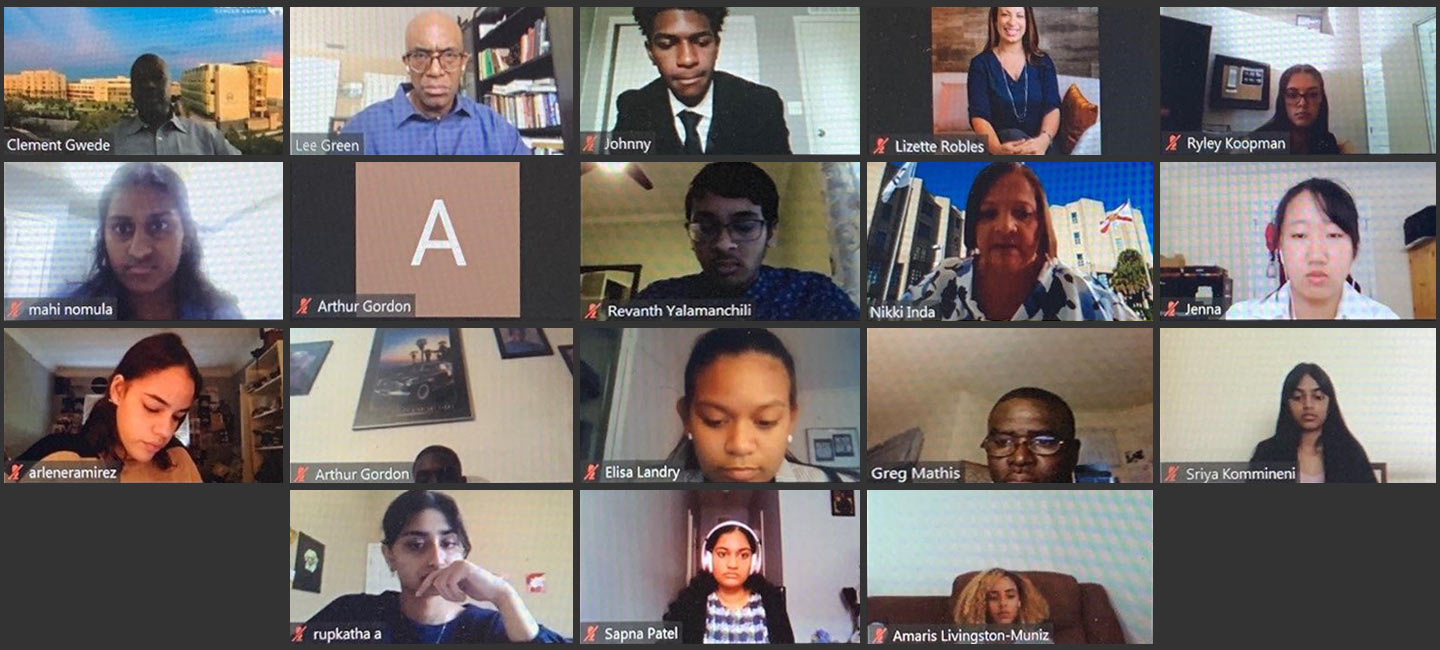The B.E.S.T. Is Yet to Come
Health disparities are experienced worldwide. But disparities, which refers to a higher burden of illness, injury, disability or mortality experienced by one group relative to another, is not a topic often talked about with high school students.
However, Naayana Johnson says now is the right time. Johnson is entering the 11th grade at Brooks DeBartolo Collegiate High School in Tampa, Florida, and is interested in a future career in health care.
Johnson was one of 40 students from the Brain Expansion Scholastic Training (B.E.S.T) Summer Academy who participated in a virtual Moffitt Healthy KIDZ program on June 25. Traditionally, B.E.S.T. students would spend the day at the cancer center for a personalized look at STEM driven careers in health care. However, due to visitor restrictions and the COVID-19 pandemic, the program was facilitated online over Zoom.
Dr. B. Lee Green, vice president of Moffitt Diversity, Public Relations and Strategic Communications co-lead the Healthy KIDZ Health Disparities 2020 discussion alongside Dr. Clement Gwede, senior member of the Health Outcomes and Behavior Department. Gwede shared several powerful slides with the students, opening their eyes to some of the colorectal cancer mortality rates experienced amongst various ethnicities. The mortality rate for white men with colorectal cancer is 16.2%, compared to a staggering 23.2% among black men with the disease. Likewise, white women have an 11.5% mortality rate, compared to 15.2% for black women.
Gwede stressed the importance of self-awareness and diversity.
“All people aspire for optimal health, no matter their circumstances,” Gwede said. “Make a proactive effort to learn as much possible about the opportunities afforded by diversity. Be attentive to differences and nuanced perspectives that promote effective inclusion and foster successful interactions with others. Diversity is a strength, not a weakness; we must embrace it!”
Virtual learning has become a positive means to keep youth focused on their future careers aspirations and connect them to experts in the field.
“I learned a lot about the issues that prevent people from receiving health care, such as insurance costs and transportation burdens,” Johnson said. “I will take the implications that health disparities have on people into consideration when caring for future patients.”
B.E.S.T Program Founder Dr. Dexter Frederick initially had concerns about taking his summer academy online.
“It was a difficult decision to arrange a virtual program in light of COVID-19,” said Frederick. “I was concerned about online class burnout and whether students would be interested in yet another online learning platform. Our curriculum has always focused on hands on experiences.”
But the virtual program proved to be very beneficial. It allowed the traditionally reserved students an opportunity to be more engaged in the dialogue. It also reduced costs associated with supplies, transportation, food and staffing.
Wharton High School graduate and B.E.S.T. scholar Jamelia King found the program very motivational.
“I dream of giving back to the community and helping those in need,” King shared. “I want to be my own leader and warrior.”
“It is extremely important for our next generation of healthcare professionals to be aware of the health disparities issues in our country. They will be the next leaders who will have innovative ideas that can help us reduce and ultimately eliminate health disparities,” Green added.
“You cannot put a price tag on the importance of these types of programs. We know how critical it is to expose our next generation to what is happening in healthcare. They need to not only be aware but to be prepared for the challenges that they may face in the future. These programs are critical in the development of our students.”
For nearly eight years, the Moffitt Healthy KIDZ program has partnered with B.E.S.T to create an inclusive environment for youth to learn more about careers in health care.



